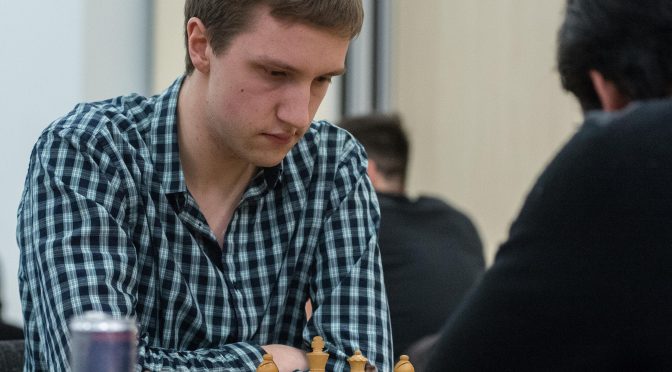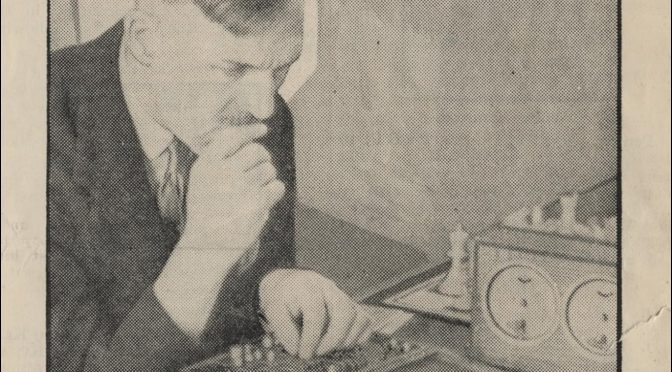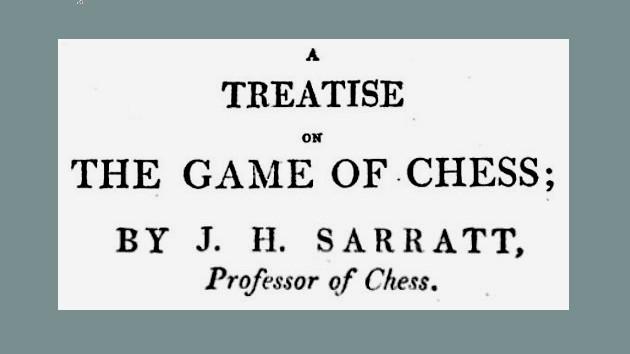Happy Birthday Malcolm Barker (21-iv-1934)
Tag Archives: English
Happy Birthday Malcolm Barker (21-iv-1934)
Remembering David Welch (30-x-1945 09-xi-2019)
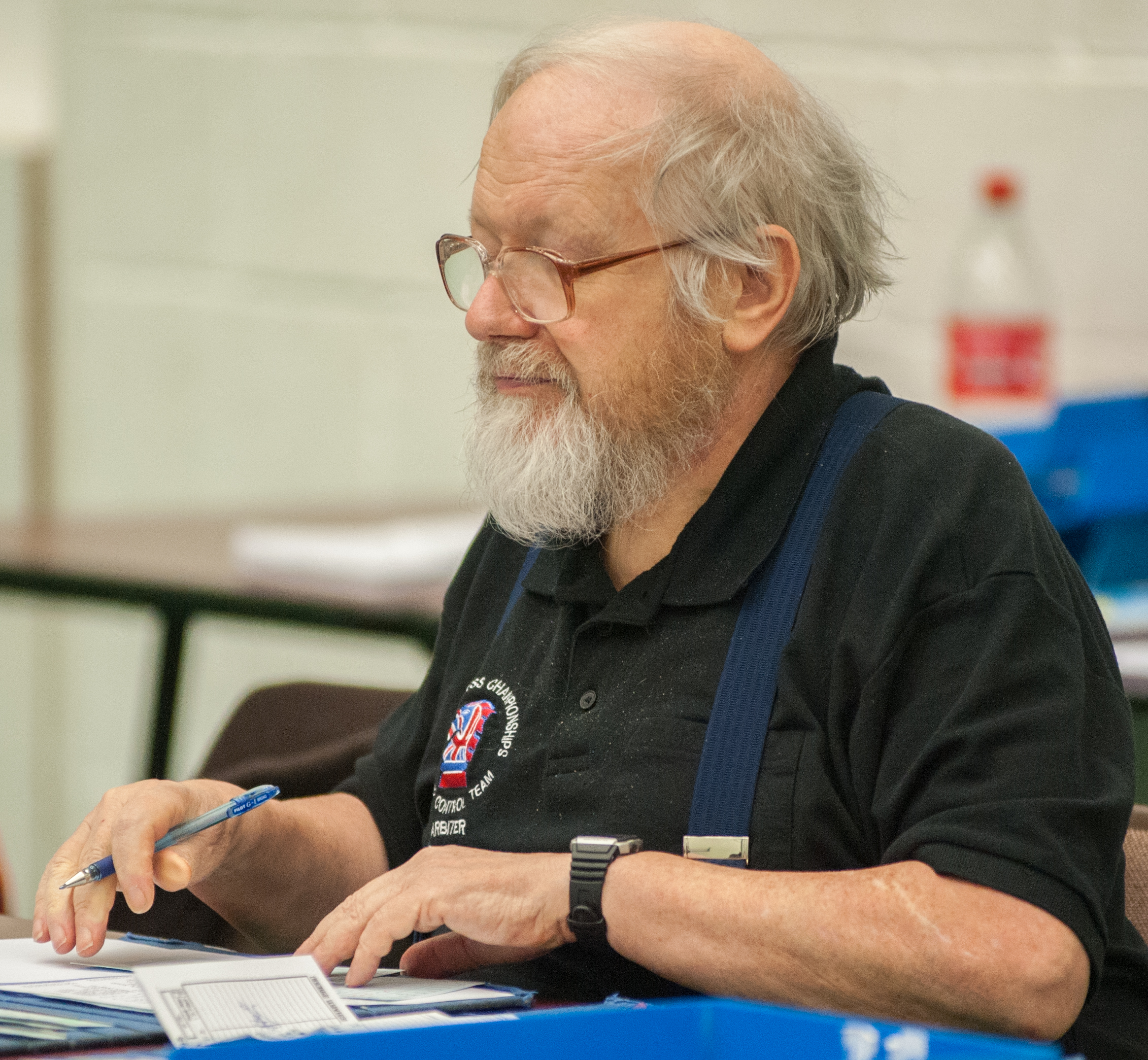
Just over two years ago today we learnt the sad news that popular longtime Arbiter and Organizer David Welch had passed away at the age of 74 after a long illness : he was being cared for in The Royal Liverpool Hospital. The funeral took place at Landican Crematorium, Arrowe Park CH49 5LW at 12 noon on Friday 6th December. Following the funeral, the wake took place at the Grove House Hotel, Grove Road, Wallasey CH44 4BT.
David was born on Tuesday, October 30th 1945 in Brampton, Chesterfield, Derbyshire and attended Chesterfield Grammar School (see below).
He played for Wallasey Chess Club for many years having initially been a member of Liverpool Chess Club.
David attended Queens’ College, Cambridge reading Natural Sciences (Chemistry) and (according to John Swain) David served Cambridge University Chess Club as Junior Treasurer, Librarian and Bulletin Editor.
In 1968 David and Peter Purland started teaching at the same Liverpool school (Liverpool College) on the same day and continued their friendship from there. David also ran the college scout troop.
In the same year David joined Liverpool Chess Club and became a leading light fairly early on.
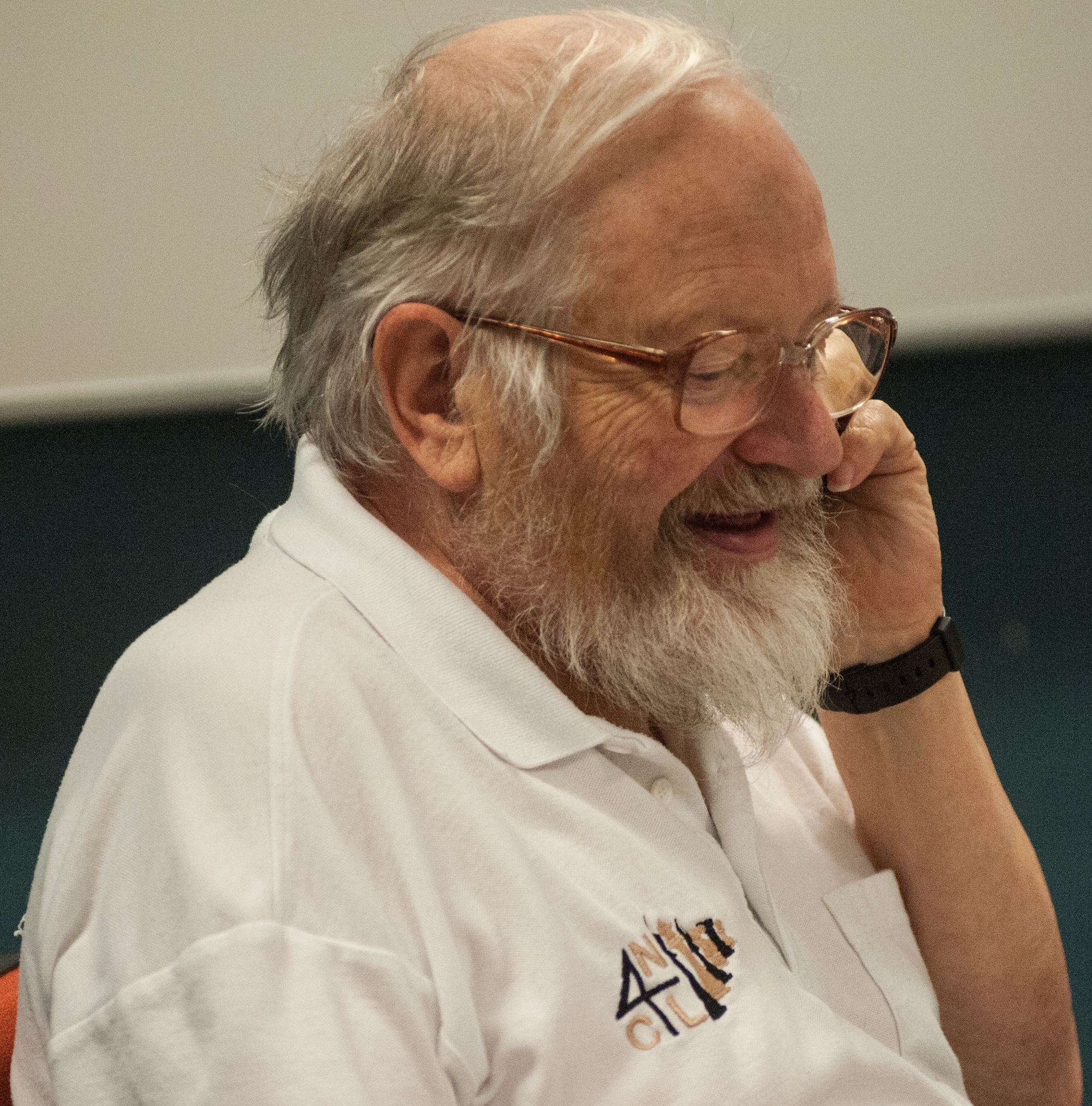
David became a BCF arbiter in the early 1970s eventually becoming the BCFs Chief Arbiter and then the ECFs Chief Arbiter and was heavily involved in many British Championships around the country.
David was curator of ECF equipment for some time and personally funded much of the BCFs and ECFs early equipment stock.
He became a FIDE International Arbiter as early as 1977 and was awarded the FIDE International Organizer title in 2010.
In 2007 David received the ECF Presidents Award from Gerry Walsh. Here is the citation in full (from the 2008 ECF Yearbook) :
“David Welch started chess organisation early being captain of the Chesterfield Grammar School team that played both in the school’s league and in the local adult league. He joined the Liverpool Chess Club after leaving University in 1968 and has held various posts with them , he is now their President. He set-up the Liverpool Chess Congress in about 1978.
Additionally, he was the director of the Liverpool Chess Congress. Although now defunct this was in its day the largest junior event in the UK (perhaps even the world) having 2000 entrants at the time of Spassky-Fisher (sic). He has also been involved in the Liverpool city of culture initiative.
He had also had a considerable involvement with the ECF. He is the the Merseyside representative to the ECF. He has been helping run the British Championships since 1981; starting at one of the arbiting team he has been Director/Manager of the congress since 2005. He has been Chief Arbiter of the Federation since about 1992. He also does the arbiting at a number of congresses and is, in particular, the Chief Arbiter of the 4NCL.”
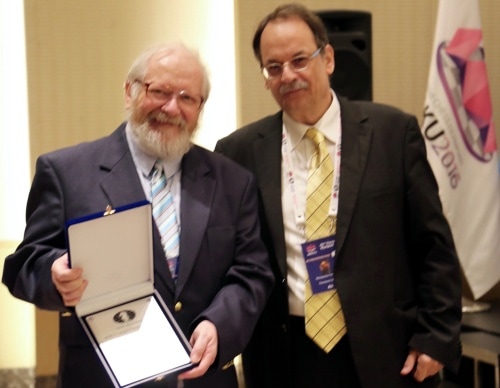
David shared the exact same date of birth as long time friend and fellow arbiter, Peter Purland.
Here is an excellent tribute from John Saunders
Here is a tribute from Liverpool College
in 2016 David received recognition from FIDE for his long service as an International Arbiter. David was the third English arbiter to receive the honour, following Stewart Reuben and Gerry Walsh in 2014.
We send our condolences to all of his many family and friends.
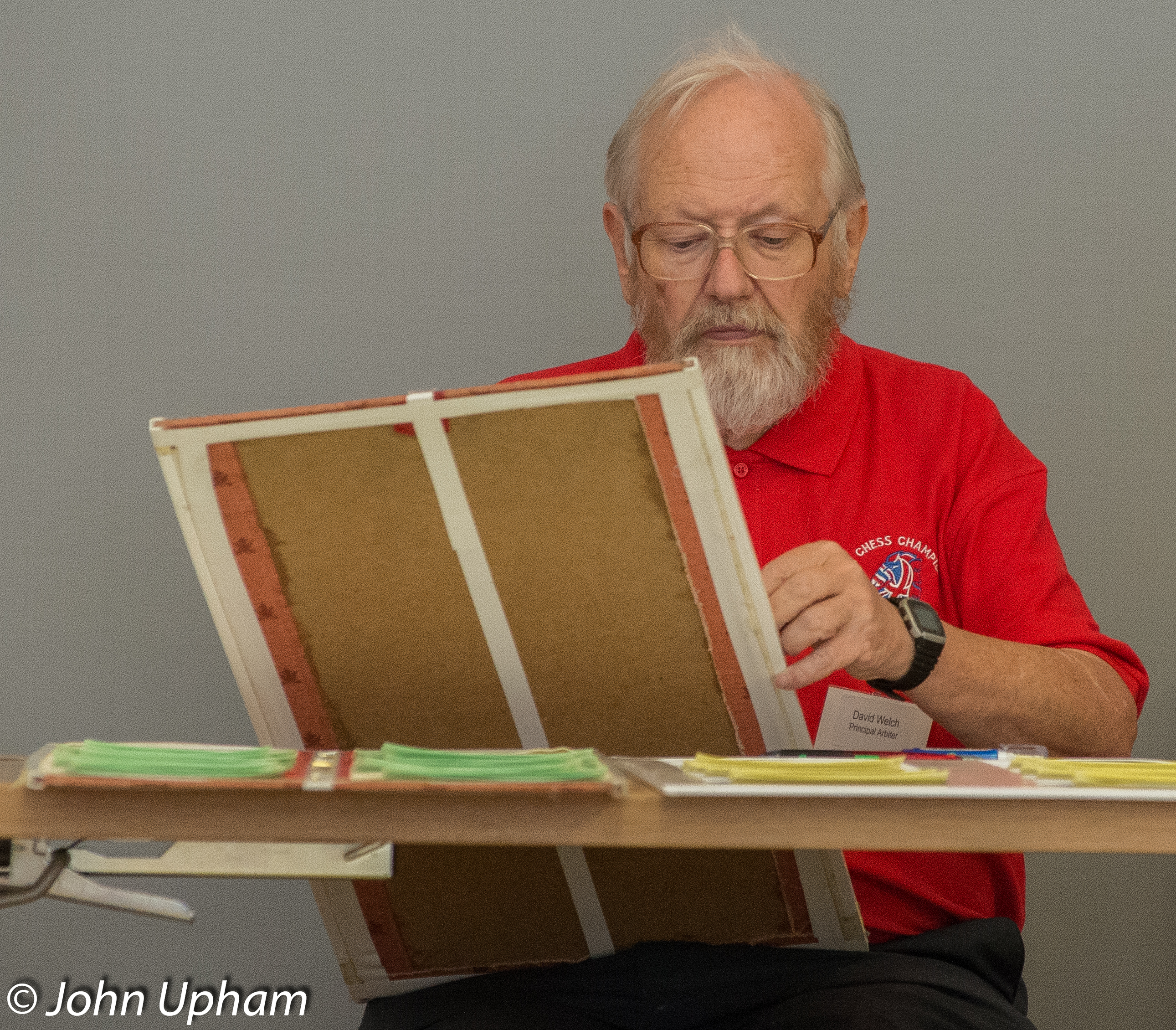
Happy Birthday IM James Adair (09-xi-1992)
BCN wishes Happy birthday to IM James Adair.
James Robert Adair was born on Monday, November 9th in 1992 in Reading, Berkshire.
James attended Little Heath School, Tilehurst, Reading and joined Reading Chess Club and was an active player in the Berkshire League and in the Surrey Border League. His father Andrew took up chess to support James as a junior.
He then read Mathematics at The University of York and now is employed by Aviva plc (formerly Norwich Union Assurance) in the field of insurance.
James became a FIDE Master in 2012 and gained his International Master title in August 2014.
According to Felice his best FIDE rating was 2489 in December 2016. According to MegaBase 2020 it was 2492 in August 2018 at the age of 26.
James started his 4NCL career in the 2006/7 season with Conquistadors and then transferred to Guildford not long after. By 2010/11 James was playing for the bar loving Sambuca Sharks team. In 2011 James transferred to 4NCL White Rose as he had just started University in Yorkshire. He was also playing for York RI.
In 2009 he shared equal 1st (4.5/5) with Alexei Slavin in the Uxbridge Open, a sadly missed e2-e4 event. Since then James has had various tournament successes.

James has plus scores against : Peter Roberson, Jack Rudd, Richard Bates and Matthew Turner amongst others.
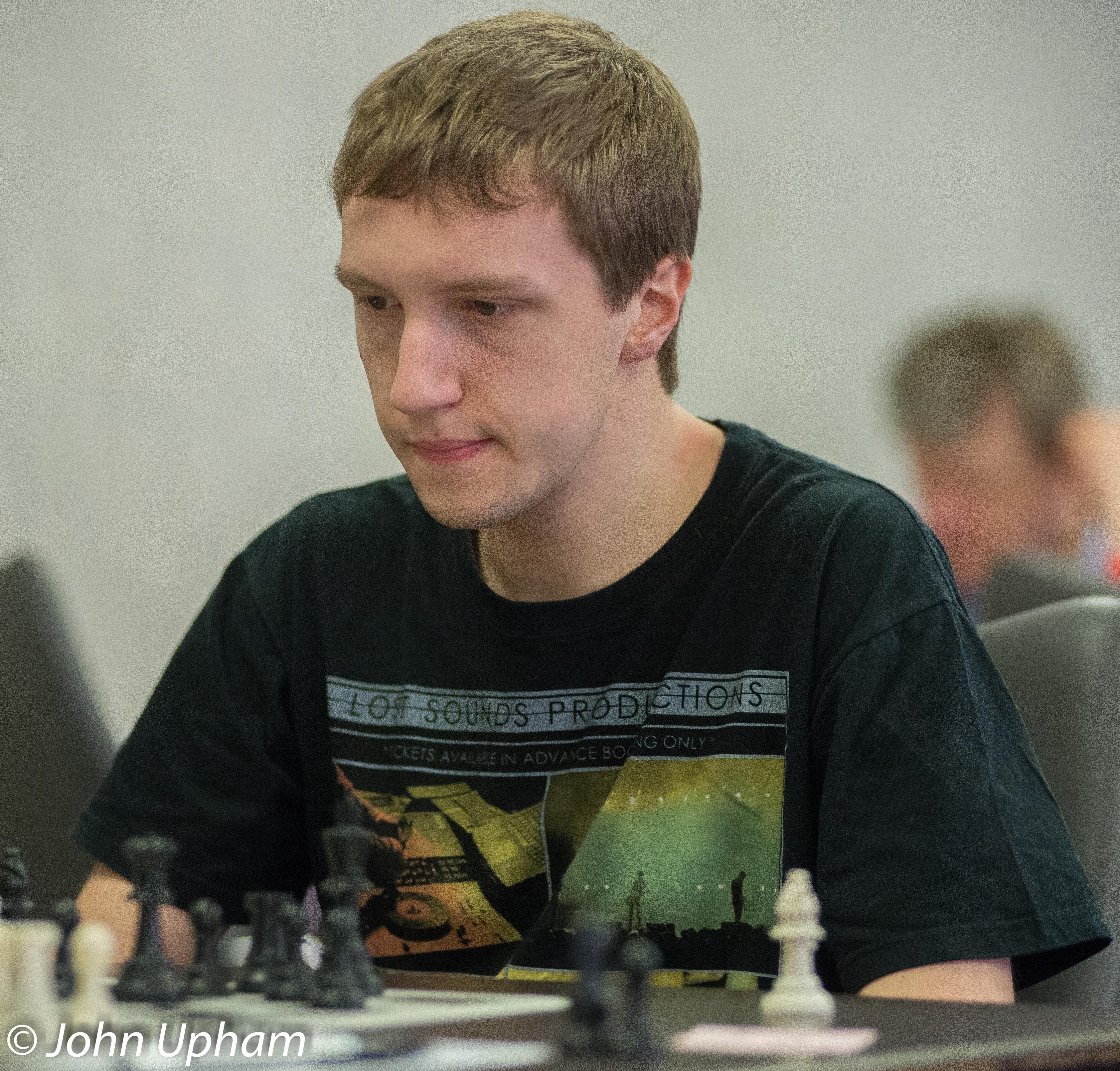
Death Anniversary of Reginald Bonham MBE MA (31-i-1906 16-iii-1984)
BCN remembers Reginald Bonham (known as “Bon”) who passed away, this day, March 16th in 1984 in Worcester, Worcestershire.
In 1970 New Years Honours, Civil Division he was awarded the MBE for “Services to the blind”. Interestingly, in 1992 his sister Mary also received an MBE for “Services to the blind” This is surely an unusual happening.
Reginald Walter Bonham was born on Wednesday, January 31st 1906 : the same day as the Ecuador–Colombia earthquake which measured 8.8 on the Richter Scale.
He was born in St. Neots, Huntingdonshire, Cambridgeshire.
In the 1911 census aged 5 he lived in the High Street, St. Neots with William R Bonham (father, master butcher, aged 45), Edith Mary Ann Bonham (mother, 38), Howard William Bonham (6), Maurice George Bonham (3) and Ernest Charles Bonham (1). The family had a servant / domestic duties assistant called Elise Annie Goss aged 18. The census did not record any disability for Reginald.
Reg, like others in his family, suffered from deficient eyesight and was therefore unable to attend a “mainstream” school.
From 1922 – 1925 he attended the Royal Worcester College for the Blind (originally Worcester College for the Blind Sons of Gentlemen) in Whittington Road, Worcester, WR5 2JX. The Headmaster (GC Brown) encouraged his chess and rowing talents and in 1926 he was sent up to St. Catherine’s College, Oxford to read mathematics.
Reginald was a highly competant rower, competing for his college and reaching the trial stage for the Oxford Varsity crew.
In 1934 Reg founded the Braille Chess Magazine.
In the 1939 census he was recorded as living at 4, St. Catherine’s Hill, Worcester, WR5 with his wife, Josephine Bonham (born 24th September 1904). Reginald was listed as being a Mathematics tutor at the Royal Worcester College for the Blind (originally Worcester College for the Blind Sons of Gentlemen) in Whittington Road, Worcester, WR5 2JX. The college is now named New College Worcester. Their home was around a mile from the College. Josephine was listed as carrying out “unpaid domestic duties”.
He taught a combination of Braille and mathematics and was an amateur thespian and keen bridge player.
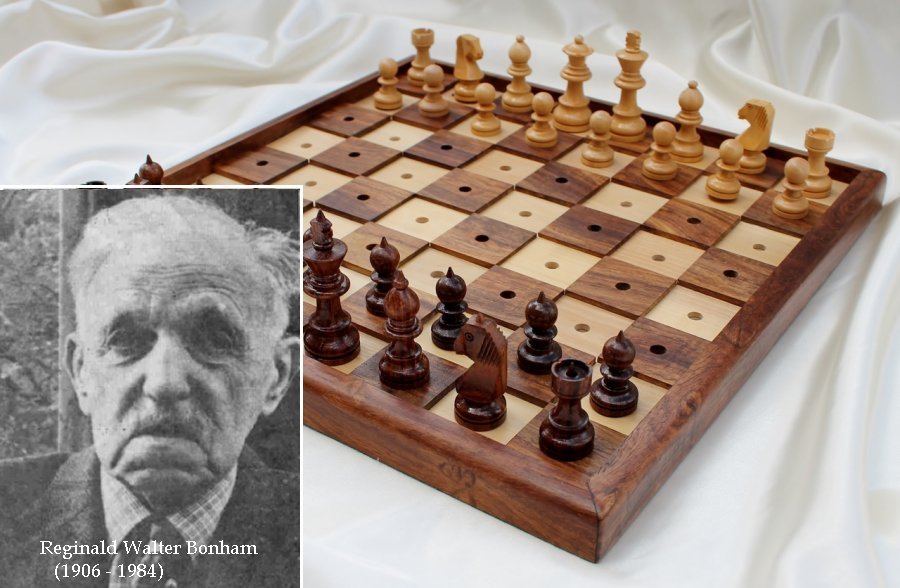
Interestingly RWB in 1939 was an ARP (Air Raid Precautions) Warden and a St. John Ambulance volunteer for the College.
He was Worcester champion twenty times and four times Midlands champion winning the Birmingham Post Cup twice.
On June 6th 1947 Bonham played in Birmingham in a match between Great Britain and Czechoslovakia playing Ladislav Alster and won this attractive game :
In 1951 he founded the International Braille Chess Association (IBCA) and continued as its President for 23 years. The IBCA affiliated to FIDE in 1964. see http://www.schachkomet.de/ibcachp4.htm for historical detail.
He was Blind World Champion in 1958 and Correspondence Blind World Champion in 1957, 1959, 1961, 1964 (jointly) and 1966.
One of his students was broadcaster Peter White MBE who described Bon in his autobiography See it My Way
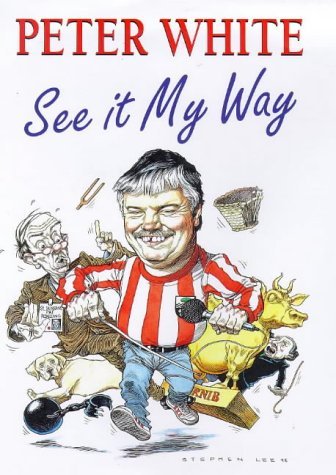
From British Chess Magazine, Volume XCII (92, 1972) Number 6 (June), page 216 we have this item in News in Brief :
“At the closing ceremony of the 4th Chess Olympiad for the Blind at Pula, Yugoslavia (April 6-18) the International Braille Chess Association awarded the title of Correspondence Grandmaster of the Blind to R.W. Bonham of Worcester, for having won the Postal Championship more than three times.”
From British Chess Magazine, Volume CIV (104, 1984) Number 5 (May), page 194 we have this obituary :
“We regret to announce the death in March of two early winners of the grandmaster title (the other was Comins Mansfield MBE).
R.W.Bonham (31 i 1906 – 16 iii 1984) died at Worcester, where he had long served as a Master at the Royal Worcester College for the Blind. In the 1950s he took part in the British Championship with success. Many older players will remember him fingering his special board before announcing his move and checking his clock with its markers outside the glass face.
He was also active in postal play, taking part in international events in the decade after the war when few British players ventured “into Europe”. A note in the 1972 BCM (page 216) records the award of the title Correspondence GM of the Blind by the International Braille Chess Association, so his omission from the recent book British Chess seems rather unfortunate.
Among the titles won by Reginald Bonham were British Correspondence Championship, shared in 1947 with J. Cairncross and shared in 1951 with E. Brown) and Midland Champion (1947 and 1950).
He was also (with Wormald) joint author of those fine little books Chess Questions Answered and More Chess Questions Answered.”
Sadly, RWB did not merit articles in Sunnucks or Golombek’s Encyclopedias or Hooper’s and Whyld’s Oxford Companion or, as mentioned previously, British Chess.
Here is a short biography from Ray Collett and here is his Wikipedia article.
More information here.
The Braille Chess Association has this entry in its Hall of Fame.
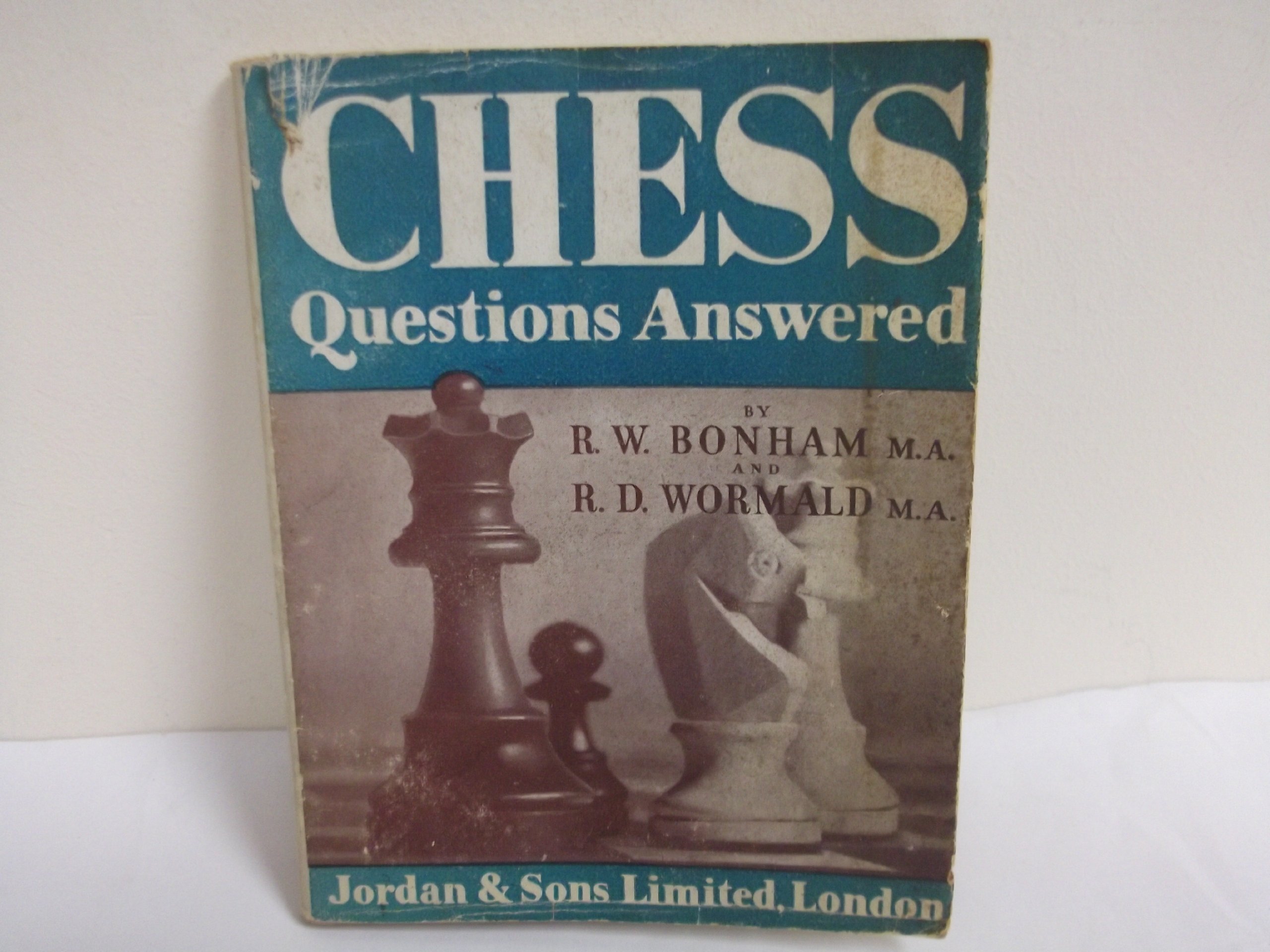

Death Anniversary of Reginald Bonham MBE MA (31-i-1906 16-iii-1984)
BCN remembers Reginald Bonham (known as “Bon”) who passed away, this day, March 16th in 1984 in Worcester, Worcestershire.
In 1970 New Years Honours, Civil Division he was awarded the MBE for “Services to the blind”. Interestingly, in 1992 his sister Mary also received an MBE for “Services to the blind” This is surely an unusual happening.
Reginald Walter Bonham was born on Wednesday, January 31st 1906 : the same day as the Ecuador–Colombia earthquake which measured 8.8 on the Richter Scale.
He was born in St. Neots, Huntingdonshire, Cambridgeshire.
In the 1911 census aged 5 he lived in the High Street, St. Neots with William R Bonham (father, master butcher, aged 45), Edith Mary Ann Bonham (mother, 38), Howard William Bonham (6), Maurice George Bonham (3) and Ernest Charles Bonham (1). The family had a servant / domestic duties assistant called Elise Annie Goss aged 18. The census did not record any disability for Reginald.
Reg, like others in his family, suffered from deficient eyesight and was therefore unable to attend a “mainstream” school.
From 1922 – 1925 he attended the Royal Worcester College for the Blind (originally Worcester College for the Blind Sons of Gentlemen) in Whittington Road, Worcester, WR5 2JX. The Headmaster (GC Brown) encouraged his chess and rowing talents and in 1926 he was sent up to St. Catherine’s College, Oxford to read mathematics.
Reginald was a highly competant rower, competing for his college and reaching the trial stage for the Oxford Varsity crew.
In 1934 Reg founded the Braille Chess Magazine.
In the 1939 census he was recorded as living at 4, St. Catherine’s Hill, Worcester, WR5 with his wife, Josephine Bonham (born 24th September 1904). Reginald was listed as being a Mathematics tutor at the Royal Worcester College for the Blind (originally Worcester College for the Blind Sons of Gentlemen) in Whittington Road, Worcester, WR5 2JX. The college is now named New College Worcester. Their home was around a mile from the College. Josephine was listed as carrying out “unpaid domestic duties”.
He taught a combination of Braille and mathematics and was an amateur thespian and keen bridge player.

Interestingly RWB in 1939 was an ARP (Air Raid Precautions) Warden and a St. John Ambulance volunteer for the College.
He was Worcester champion twenty times and four times Midlands champion winning the Birmingham Post Cup twice.
On June 6th 1947 Bonham played in Birmingham in a match between Great Britain and Czechoslovakia playing Ladislav Alster and won this attractive game :
In 1951 he founded the International Braille Chess Association (IBCA) and continued as its President for 23 years. The IBCA affiliated to FIDE in 1964. see http://www.schachkomet.de/ibcachp4.htm for historical detail.
He was Blind World Champion in 1958 and Correspondence Blind World Champion in 1957, 1959, 1961, 1964 (jointly) and 1966.
One of his students was broadcaster Peter White MBE who described Bon in his autobiography See it My Way

From British Chess Magazine, Volume XCII (92, 1972) Number 6 (June), page 216 we have this item in News in Brief :
“At the closing ceremony of the 4th Chess Olympiad for the Blind at Pula, Yugoslavia (April 6-18) the International Braille Chess Association awarded the title of Correspondence Grandmaster of the Blind to R.W. Bonham of Worcester, for having won the Postal Championship more than three times.”
From British Chess Magazine, Volume CIV (104, 1984) Number 5 (May), page 194 we have this obituary :
“We regret to announce the death in March of two early winners of the grandmaster title (the other was Comins Mansfield MBE).
R.W.Bonham (31 i 1906 – 16 iii 1984) died at Worcester, where he had long served as a Master at the Royal Worcester College for the Blind. In the 1950s he took part in the British Championship with success. Many older players will remember him fingering his special board before announcing his move and checking his clock with its markers outside the glass face.
He was also active in postal play, taking part in international events in the decade after the war when few British players ventured “into Europe”. A note in the 1972 BCM (page 216) records the award of the title Correspondence GM of the Blind by the International Braille Chess Association, so his omission from the recent book British Chess seems rather unfortunate.
Among the titles won by Reginald Bonham were British Correspondence Championship, shared in 1947 with J. Cairncross and shared in 1951 with E. Brown) and Midland Champion (1947 and 1950).
He was also (with Wormald) joint author of those fine little books Chess Questions Answered and More Chess Questions Answered.”
Sadly, RWB did not merit articles in Sunnucks or Golombek’s Encyclopedias or Hooper’s and Whyld’s Oxford Companion or, as mentioned previously, British Chess.
Here is a short biography from Ray Collett and here is his Wikipedia article.
More information here.
The Braille Chess Association has this entry in its Hall of Fame.


Death Anniversary of Reginald Bonham MBE MA (31-i-1906 16-iii-1984)
BCN remembers Reginald Bonham (known as “Bon”) who passed away, this day, March 16th in 1984 in Worcester, Worcestershire.
In 1970 New Years Honours, Civil Division he was awarded the MBE for “Services to the blind”. Interestingly, in 1992 his sister Mary also received an MBE for “Services to the blind” This is surely an unusual happening.
Reginald Walter Bonham was born on Wednesday, January 31st 1906 : the same day as the Ecuador–Colombia earthquake which measured 8.8 on the Richter Scale.
He was born in St. Neots, Huntingdonshire, Cambridgeshire.
In the 1911 census aged 5 he lived in the High Street, St. Neots with William R Bonham (father, master butcher, aged 45), Edith Mary Ann Bonham (mother, 38), Howard William Bonham (6), Maurice George Bonham (3) and Ernest Charles Bonham (1). The family had a servant / domestic duties assistant called Elise Annie Goss aged 18. The census did not record any disability for Reginald.
Reg, like others in his family, suffered from deficient eyesight and was therefore unable to attend a “mainstream” school.
From 1922 – 1925 he attended the Royal Worcester College for the Blind (originally Worcester College for the Blind Sons of Gentlemen) in Whittington Road, Worcester, WR5 2JX. The Headmaster (GC Brown) encouraged his chess and rowing talents and in 1926 he was sent up to St. Catherine’s College, Oxford to read mathematics.
Reginald was a highly competant rower, competing for his college and reaching the trial stage for the Oxford Varsity crew.
In 1934 Reg founded the Braille Chess Magazine.
In the 1939 census he was recorded as living at 4, St. Catherine’s Hill, Worcester, WR5 with his wife, Josephine Bonham (born 24th September 1904). Reginald was listed as being a Mathematics tutor at the Royal Worcester College for the Blind (originally Worcester College for the Blind Sons of Gentlemen) in Whittington Road, Worcester, WR5 2JX. The college is now named New College Worcester. Their home was around a mile from the College. Josephine was listed as carrying out “unpaid domestic duties”.
He taught a combination of Braille and mathematics and was an amateur thespian and keen bridge player.

Interestingly RWB in 1939 was an ARP (Air Raid Precautions) Warden and a St. John Ambulance volunteer for the College.
He was Worcester champion twenty times and four times Midlands champion winning the Birmingham Post Cup twice.
On June 6th 1947 Bonham played in Birmingham in a match between Great Britain and Czechoslovakia playing Ladislav Alster and won this attractive game :
In 1951 he founded the International Braille Chess Association (IBCA) and continued as its President for 23 years. The IBCA affiliated to FIDE in 1964. see http://www.schachkomet.de/ibcachp4.htm for historical detail.
He was Blind World Champion in 1958 and Correspondence Blind World Champion in 1957, 1959, 1961, 1964 (jointly) and 1966.
One of his students was broadcaster Peter White MBE who described Bon in his autobiography See it My Way

From British Chess Magazine, Volume XCII (92, 1972) Number 6 (June), page 216 we have this item in News in Brief :
“At the closing ceremony of the 4th Chess Olympiad for the Blind at Pula, Yugoslavia (April 6-18) the International Braille Chess Association awarded the title of Correspondence Grandmaster of the Blind to R.W. Bonham of Worcester, for having won the Postal Championship more than three times.”
From British Chess Magazine, Volume CIV (104, 1984) Number 5 (May), page 194 we have this obituary :
“We regret to announce the death in March of two early winners of the grandmaster title (the other was Comins Mansfield MBE).
R.W.Bonham (31 i 1906 – 16 iii 1984) died at Worcester, where he had long served as a Master at the Royal Worcester College for the Blind. In the 1950s he took part in the British Championship with success. Many older players will remember him fingering his special board before announcing his move and checking his clock with its markers outside the glass face.
He was also active in postal play, taking part in international events in the decade after the war when few British players ventured “into Europe”. A note in the 1972 BCM (page 216) records the award of the title Correspondence GM of the Blind by the International Braille Chess Association, so his omission from the recent book British Chess seems rather unfortunate.
Among the titles won by Reginald Bonham were British Correspondence Championship, shared in 1947 with J. Cairncross and shared in 1951 with E. Brown) and Midland Champion (1947 and 1950).
He was also (with Wormald) joint author of those fine little books Chess Questions Answered and More Chess Questions Answered.”
Sadly, RWB did not merit articles in Sunnucks or Golombek’s Encyclopedias or Hooper’s and Whyld’s Oxford Companion or, as mentioned previously, British Chess.
Here is a short biography from Ray Collett and here is his Wikipedia article.
More information here.
The Braille Chess Association has this entry in its Hall of Fame.


Death Anniversary of Reginald Bonham MBE MA (31-i-1906 16-iii-1984)
BCN remembers Reginald Bonham (known as “Bon”) who passed away, this day, March 16th in 1984 in Worcester, Worcestershire.
In 1970 New Years Honours, Civil Division he was awarded the MBE for “Services to the blind”. Interestingly, in 1992 his sister Mary also received an MBE for “Services to the blind” This is surely an unusual happening.
Reginald Walter Bonham was born on Wednesday, January 31st 1906 : the same day as the Ecuador–Colombia earthquake which measured 8.8 on the Richter Scale.
He was born in St. Neots, Huntingdonshire, Cambridgeshire.
In the 1911 census aged 5 he lived in the High Street, St. Neots with William R Bonham (father, master butcher, aged 45), Edith Mary Ann Bonham (mother, 38), Howard William Bonham (6), Maurice George Bonham (3) and Ernest Charles Bonham (1). The family had a servant / domestic duties assistant called Elise Annie Goss aged 18. The census did not record any disability for Reginald.
Reg, like others in his family, suffered from deficient eyesight and was therefore unable to attend a “mainstream” school.
From 1922 – 1925 he attended the Royal Worcester College for the Blind (originally Worcester College for the Blind Sons of Gentlemen) in Whittington Road, Worcester, WR5 2JX. The Headmaster (GC Brown) encouraged his chess and rowing talents and in 1926 he was sent up to St. Catherine’s College, Oxford to read mathematics.
Reginald was a highly competant rower, competing for his college and reaching the trial stage for the Oxford Varsity crew.
In 1934 Reg founded the Braille Chess Magazine.
In the 1939 census he was recorded as living at 4, St. Catherine’s Hill, Worcester, WR5 with his wife, Josephine Bonham (born 24th September 1904). Reginald was listed as being a Mathematics tutor at the Royal Worcester College for the Blind (originally Worcester College for the Blind Sons of Gentlemen) in Whittington Road, Worcester, WR5 2JX. The college is now named New College Worcester. Their home was around a mile from the College. Josephine was listed as carrying out “unpaid domestic duties”.
He taught a combination of Braille and mathematics and was an amateur thespian and keen bridge player.

Interestingly RWB in 1939 was an ARP (Air Raid Precautions) Warden and a St. John Ambulance volunteer for the College.
He was Worcester champion twenty times and four times Midlands champion winning the Birmingham Post Cup twice.
On June 6th 1947 Bonham played in Birmingham in a match between Great Britain and Czechoslovakia playing Ladislav Alster and won this attractive game :
In 1951 he founded the International Braille Chess Association (IBCA) and continued as its President for 23 years. The IBCA affiliated to FIDE in 1964. see http://www.schachkomet.de/ibcachp4.htm for historical detail.
He was Blind World Champion in 1958 and Correspondence Blind World Champion in 1957, 1959, 1961, 1964 (jointly) and 1966.
One of his students was broadcaster Peter White MBE who described Bon in his autobiography See it My Way

From British Chess Magazine, Volume XCII (92, 1972) Number 6 (June), page 216 we have this item in News in Brief :
“At the closing ceremony of the 4th Chess Olympiad for the Blind at Pula, Yugoslavia (April 6-18) the International Braille Chess Association awarded the title of Correspondence Grandmaster of the Blind to R.W. Bonham of Worcester, for having won the Postal Championship more than three times.”
From British Chess Magazine, Volume CIV (104, 1984) Number 5 (May), page 194 we have this obituary :
“We regret to announce the death in March of two early winners of the grandmaster title (the other was Comins Mansfield MBE).
R.W.Bonham (31 i 1906 – 16 iii 1984) died at Worcester, where he had long served as a Master at the Royal Worcester College for the Blind. In the 1950s he took part in the British Championship with success. Many older players will remember him fingering his special board before announcing his move and checking his clock with its markers outside the glass face.
He was also active in postal play, taking part in international events in the decade after the war when few British players ventured “into Europe”. A note in the 1972 BCM (page 216) records the award of the title Correspondence GM of the Blind by the International Braille Chess Association, so his omission from the recent book British Chess seems rather unfortunate.
Among the titles won by Reginald Bonham were British Correspondence Championship, shared in 1947 with J. Cairncross and shared in 1951 with E. Brown) and Midland Champion (1947 and 1950).
He was also (with Wormald) joint author of those fine little books Chess Questions Answered and More Chess Questions Answered.”
Sadly, RWB did not merit articles in Sunnucks or Golombek’s Encyclopedias or Hooper’s and Whyld’s Oxford Companion or, as mentioned previously, British Chess.
Here is a short biography from Ray Collett and here is his Wikipedia article.
More information here.
The Braille Chess Association has this entry in its Hall of Fame.


Death Anniversary of Reginald Bonham MBE MA (31-i-1906 16-iii-1984)
BCN remembers Reginald Bonham (known as “Bon”) who passed away, this day, March 16th in 1984 in Worcester, Worcestershire.
In 1970 New Years Honours, Civil Division he was awarded the MBE for “Services to the blind”. Interestingly, in 1992 his sister Mary also received an MBE for “Services to the blind” This is surely an unusual happening.
Reginald Walter Bonham was born on Wednesday, January 31st 1906 : the same day as the Ecuador–Colombia earthquake which measured 8.8 on the Richter Scale.
He was born in St. Neots, Huntingdonshire, Cambridgeshire.
In the 1911 census aged 5 he lived in the High Street, St. Neots with William R Bonham (father, master butcher, aged 45), Edith Mary Ann Bonham (mother, 38), Howard William Bonham (6), Maurice George Bonham (3) and Ernest Charles Bonham (1). The family had a servant / domestic duties assistant called Elise Annie Goss aged 18. The census did not record any disability for Reginald.
Reg, like others in his family, suffered from deficient eyesight and was therefore unable to attend a “mainstream” school.
From 1922 – 1925 he attended the Royal Worcester College for the Blind (originally Worcester College for the Blind Sons of Gentlemen) in Whittington Road, Worcester, WR5 2JX. The Headmaster (GC Brown) encouraged his chess and rowing talents and in 1926 he was sent up to St. Catherine’s College, Oxford to read mathematics.
Reginald was a highly competant rower, competing for his college and reaching the trial stage for the Oxford Varsity crew.
In 1934 Reg founded the Braille Chess Magazine.
In the 1939 census he was recorded as living at 4, St. Catherine’s Hill, Worcester, WR5 with his wife, Josephine Bonham (born 24th September 1904). Reginald was listed as being a Mathematics tutor at the Royal Worcester College for the Blind (originally Worcester College for the Blind Sons of Gentlemen) in Whittington Road, Worcester, WR5 2JX. The college is now named New College Worcester. Their home was around a mile from the College. Josephine was listed as carrying out “unpaid domestic duties”.
He taught a combination of Braille and mathematics and was an amateur thespian and keen bridge player.

Interestingly RWB in 1939 was an ARP (Air Raid Precautions) Warden and a St. John Ambulance volunteer for the College.
He was Worcester champion twenty times and four times Midlands champion winning the Birmingham Post Cup twice.
On June 6th 1947 Bonham played in Birmingham in a match between Great Britain and Czechoslovakia playing Ladislav Alster and won this attractive game :
In 1951 he founded the International Braille Chess Association (IBCA) and continued as its President for 23 years. The IBCA affiliated to FIDE in 1964. see http://www.schachkomet.de/ibcachp4.htm for historical detail.
He was Blind World Champion in 1958 and Correspondence Blind World Champion in 1957, 1959, 1961, 1964 (jointly) and 1966.
One of his students was broadcaster Peter White MBE who described Bon in his autobiography See it My Way

From British Chess Magazine, Volume XCII (92, 1972) Number 6 (June), page 216 we have this item in News in Brief :
“At the closing ceremony of the 4th Chess Olympiad for the Blind at Pula, Yugoslavia (April 6-18) the International Braille Chess Association awarded the title of Correspondence Grandmaster of the Blind to R.W. Bonham of Worcester, for having won the Postal Championship more than three times.”
From British Chess Magazine, Volume CIV (104, 1984) Number 5 (May), page 194 we have this obituary :
“We regret to announce the death in March of two early winners of the grandmaster title (the other was Comins Mansfield MBE).
R.W.Bonham (31 i 1906 – 16 iii 1984) died at Worcester, where he had long served as a Master at the Royal Worcester College for the Blind. In the 1950s he took part in the British Championship with success. Many older players will remember him fingering his special board before announcing his move and checking his clock with its markers outside the glass face.
He was also active in postal play, taking part in international events in the decade after the war when few British players ventured “into Europe”. A note in the 1972 BCM (page 216) records the award of the title Correspondence GM of the Blind by the International Braille Chess Association, so his omission from the recent book British Chess seems rather unfortunate.
Among the titles won by Reginald Bonham were British Correspondence Championship, shared in 1947 with J. Cairncross and shared in 1951 with E. Brown) and Midland Champion (1947 and 1950).
He was also (with Wormald) joint author of those fine little books Chess Questions Answered and More Chess Questions Answered.”
Sadly, RWB did not merit articles in Sunnucks or Golombek’s Encyclopedias or Hooper’s and Whyld’s Oxford Companion or, as mentioned previously, British Chess.
Here is a short biography from Ray Collett and here is his Wikipedia article.
More information here.
The Braille Chess Association has this entry in its Hall of Fame.


Remembering Jacob Sarratt (?-?-1772 06-xi-1819)
We remember Jacob Henry Sarratt who died 207 years ago today (November 6th) in 1819.
Chess historians will, of course, be familiar with JHS but the name is (probably) not well known outside these exalted circles.
Possibly his most obvious contribution to chess in England was in 1807 when he influenced the result of games that ended in stalemate. You may not know that in England prior to 1807 a game that ended in stalemate was recorded as a win for the party who was stalemated. JHS was able to encourage various major chess clubs so that the result be recorded as a draw. Much endgame theory would be different if it wasn’t for JHS !
Outside of chess, JHS was an interesting chap:
The initial content below has been taken from (and we have corrected a number of typos along the way) from http://www.edochess.ca/batgirl/Sarratt.html
Also, http://billwall.phpwebhosting.com/articles/Sarratt.htm is worthy of consultation.
“Jacob Henry Sarratt, born in 1772, worked primarily as schoolmaster but was much better known for his advocations which, of course, included chess.
After Philidor’s death, Verdoni (along with Leger, Carlier and Bernard – all four who co-authored Traité Théorique et Pratique du jeu des Echecs par une Societé d’ Amateurs) was considered one of the strongest players in the world, especially in England. Verdoni had taken Philidor’s place as house professional at Parsloe’s. He mentored Jacob Sarratt until he died in 1804. That year Sarratt became the house professional at the Salopian at Charing Cross in London and most of his contemporaries considered him London’s strongest player.
There he claimed the title of Professor of Chess while teaching chess at the price of a guinea per game.
By any measure Sarratt was not a particularly strong player, but he was able to maintain the illusion that he was by avoiding the stronger players as he lorded over his students who didn’t know better.
Sarratt’s most important contribution to chess was that he mentored William Lewis who in turn mentored Alexander McDonnell.
Sarratt had a strange notion that chess culminated in the 16th century and that everything since then had been a step backwards. This odd notion had a positive side. Philidor was the darling of the English chess scene. Almost all books at that time were versions of, or at least based on, Philidor’s book. Sarratt at least kept open the possibility that there were ideas beyond those of Philidor.
In 1808, true to his role as a teacher, Sarratt published his Treatise on the Game of Chess, a book that mainly concentrated on direct attacks on the king which he lifted from the Modense writers.
He translated several older writers whom he admired (though his translations are not considered particularly good):
The Works of Damiano, Ruy Lopez and Salvio in 1813.
The Works of Gianutio and Gustavus Selenus in 1817.
In 1921 a posthumous edition of his Treatise, A New Treatise on the Game of Chess, was published. This copy covered the game of chess as a whole and was designed for the novice player. It also contained a 98 page analysis of the Muzio Gambit
In addition to his chess books, Sarratt also published
History of Man in 1802,
A New Picture of London in 1803
He translated Three Monks!!! from French in 1803 and Koenigsmark the Robber from German in 1803.
His second wife, Elizabeth Camillia Dufour, was also a writer. In 1803 (before they were married, which was 1804), she published a novel called Aurora or the Mysterious Beauty.
They were married the following year. His first wife had died in 1802 at the age of 18. Both his wives were from Jersey.
Contrary to what one might expect, Sarratt has been described tall, lean and muscular and had even been a prize-fighter at one point. He had also bred dogs for fighting. He was regarded as a very affable fellow and very well-read but with limited taste (Ed: surely this applies to everyone ?)
William Hazlitt, in his essay On Coffee-House Politicians wrote:
[Dr. Whittle] was once sitting where Sarratt was playing a game at chess without seeing the board… Sarratt, who was a man of various accomplishments, afterwards bared his arm to convince us of his muscular strength…
Sarratt, the chess-player, was an extraordinary man. He had the same tenacious, epileptic faculty in other things that he had at chess, and could no more get any other ideas out of his mind than he could those of the figures on the board. He was a great reader, but had not the least taste. Indeed the violence of his memory tyrannised over and destroyed all power of selection. He could repeat [all] Ossian by heart, without knowing the best passage from the worst; and did not perceive he was tiring you to death by giving an account of the breed, education, and manners of fighting-dogs for hours together. The sense of reality quite superseded the distinction between the pleasurable and the painful. He was altogether a mechanical philosopher.”
Somewhere along the way there must have come about a complete reversal of his fortunes because Sarratt died impoverished in 1819, leaving his wife destitute. But the resilient Elizabeth Sarratt was able to support herself by giving chess lessons to the aristocracy of Paris.
She must have been very well liked. In 1843 when she herself became old and unable to provide for herself, players from both England and France took up a fund to help her out. She lived until 1846.
From The Oxford Companion to Chess (OUP, 1984 & 1992) by Hooper & Whyld :
Reputedly the best player in England from around 1805 until his death. As a young man he met Philidor. Subsequently he developed his game by practice with a strong French player Hippolyte du Rourblanc (d. 1813), with whom he had a long friendship dating from 1798, and with Verdoni, Sarratt’s first important contribution to the game was in connection with the laws of chess: he persuaded the London club, founded in 1807, to accept that a game ending in stalemate should be regarded as a draw and not as a win for the player who is stalemated. He became a professional at the Salopian coffee house at Charing Cross, London,

and in 1808 wrote his Treatise on the Game of Chess.

This, largely a compilation from the work of the Modenese masters, advocated that players should seek direct attack upon the enemy king, a style that dominated the game until the 1870s. An Oxford surgeon, W. Tuckwell, wrote that he learned chess ‘from the famous Sarratt, the great chess teacher, whose fee was as a guinea a lesson’. Lewis, who played many games with Sarratt from 1816, wrote in 1822 (after he had met both Deschapelles and Bourdonnais) that Sarratt was the most finished player he had ever met, Sarratt translated the works of several early writers on the game, making them known for the first time to English readers: The Works of Damiano, Ruy Lopez and Selenus (1813) and The Works of Gianutio and Gustavus Selenus (1817).
He died impoverished on 6 Nov. 1819 after a long illness during which he was unable lo earn a livelihood by teaching. Instead he wrote his New Treatise on the Game of Chess published posthumously in 1821, This is the first book to include a comprehensive beginner’s section: in more than 200 pages Sarratt teaches by means of question and answer. Another feature is a 98-page analysis of the Muzio gambit :
Had it been Sarratt’s ambition to become a chess professional there would have been scant opportunity during the lifetime of Philidor and Verdoni. A tall, lean, yet muscular man, sociable and talkative, he seems in his younger days to have had interests of a different kind, among them prize fighting and the breeding of fighting dogs. Hazlitt, who met Sarratt around 1812 wrote ‘He was a great reader, but had not the least taste. Indeed the violence of his memory tyrannised over and destroyed all power of selection. He could repeat Ossian by heart, without knowing the best passage from the worst.’
Sarratt’s early publications were History of Man (1802): translations of two Gothic novels, The Three Monks!!! (1803), from the French of Elisabeth Guénard (Baronne de Méré) , and Koenigsmark the Robber (1803), from the German of R. E. Raspe; A New Future of London (1803), an excellent guide that ran to several editions, the last in 1814, When war broke out with France in 1803 Sarratt became, for a short period, a lieutenant in the Royal York Mary-le-Bone Volunteers and published Life of Bonaparte * a propaganda booklet detailing Napoleon’s alleged war crimes, and warning of the desolation that would follow if he were to invade.
Not long after the birth of his second child in 1802 Sarratt’s wife died and in 1804 he married a Drury Lane singer, Elisabeth Camilla Du four. Tt would be difficult to find a more accomplished, a more amiable, or a happier couple than Mr and Mrs Sarratt’ – Mary Julia Young, Memoirs of Mrs Crouch (1806), Mrs Sarratt too was a writer contributing tales to various journals and publishing Aurora or the Mysterious Beauty (1803), a translation of a French novel. She survived her husband until 1846, ending her days giving chess lessons to the aristocracy in Paris. In 1843 Louis-Philippe and many players from England and France subscribed to a fund on her behalf. ”
From The Encyclopedia of Chess (Robert Hale, 1970 & 1976), Anne Sunnucks :
“Self-styled ‘Professor of Chess’, Sarratt was the first professional player to teach the game in England. He was the author of a A Treatise on the Game of Chess, The (1808), The Works of Damiano, Ruy Lopez and Salvio (1813), The Works of Gianutio and Gustavas Selenus (1817) and a New Treatise on the Game of Chess (1821).
There is no record of Sarratt’s date or place of birth, He began his career as a schoolmaster and later taught chess at Tom’s Coffee House, Cornhill, London, and at the London Chess Club, and was in his day considered to be the strongest player in London.”
From The Encyclopedia of Chess (Batsford, 1983), Harry Golombek OBE :
“Leading English player of the late eighteenth and early nineteenth century. Famed in his day as a teacher and author. Sarratt adopted the title of ‘Professor of Chess’, His writings include A Treatise on the Game of Chess, London 1808, The Works of Damiano, Ruy Lopez and Salvio (1813).
Sarratt is usually credited with introducing into England the Continental practise of counting a game ending in stalemate as a draw. (RDK)”
Some games by Jacob Henry Sarratt:

